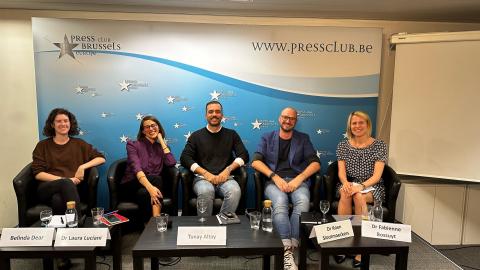A Union of Equality? The current state of LGBTQI+ rights and the EU
The von der Leyen commission has been the most vocal about its ambition to build a Union of Equality, including for LGBTQI+ people. But what does that mean in practice when there is a rise of anti-gender movements across the continent that challenge the visibility of LGBTQI+ people and where member states are adopting legislation that undermines LGBTQI+ rights? What does a Union of Equality mean for the lived experiences of those who do not fall within hetero-normative societies? But also what does the idea of a Union of Equality mean for people outside the EU, whether they are migrants, asylum seekers or those living in aspiring EU member states?
In this panel, we explored the current state of LGBTQI+ rights within and outside the EU and reflected on what the commission’s ambition for a Union of Equality means for LGBTQI+ people.
The event was funded by the Erasmus+ Programme of the European Union.
The transcription in the video below has been generated using automated speech recognition technology. While every effort has been made to ensure accuracy, errors may occur due to audio quality, accents and dialects, inaudible speech, technical limitations and homophones.
Speakers
(as shown on the photo from the left)
Belinda Dear (ILGA-Europe)
Dr Laura Luciani (Ghent University)
Tunay Altay (Humboldt University of Berlin)
Dr Koen Slootmaeckers (City, University of London)
Chair: Prof Dr Fabienne Bossuyt (Ghent University)
The event was funded by the Erasmus+ Programme of the European Union.


